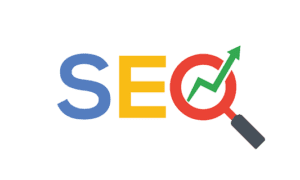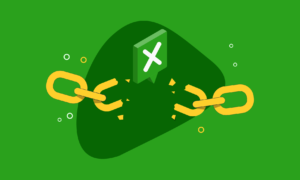Search has never been static and nowhere is that more evident than in the world of B2B SaaS. For years, SaaS companies leaned on SEO agencies to drive predictable website traffic, generate inbound leads, and position themselves as category leaders. But the landscape is shifting. With the rise of large language models (LLMs) like ChatGPT, Claude, and Perplexity, buyers are no longer relying solely on Google. They’re asking questions directly inside AI platforms and expecting authoritative, instant answers.
This shift poses a new challenge for SaaS founders and marketing leaders: how do you choose an SEO agency that not only understands traditional search mechanics but also positions your company for visibility inside LLMs?
The best agencies are already experimenting with prompt testing, AI visibility tracking, and citation-building strategies, while balancing the fundamentals of technical SEO and content-led growth. Finding the right partner means evaluating expertise across these new domains. For instance, a focused regional provider might be found at https://seo-agentur.koeln/seo-agentur-koeln, demonstrating the breadth of specialized agencies available, from local experts to global SaaS specialists.
In this article, we compare some of the top SEO agencies serving B2B SaaS companies, examining their strengths, weaknesses, and unique approaches. The goal is not to crown a single winner but to highlight what makes these agencies successful and what SaaS brands should look for when selecting a partner in this new era of search.
1. Derivate X
Derivate X has quickly positioned itself as one of the most forward-looking SEO partners for B2B SaaS. While many agencies are still focused solely on traditional rankings, Derivate X has built its reputation around LLM SEO, the emerging discipline of optimizing visibility inside AI-powered search engines like ChatGPT, Claude, and Perplexity.
The agency’s philosophy is simple: “create digital evidence so that LLMs treat you as an authoritative source.” This approach goes beyond keywords and backlinks. It includes building contextual authority, engineering citation strategies, and ensuring SaaS brands show up where prospects are asking questions, even if those questions never touch Google.
Strengths:
- Proven SaaS specialization, with case studies across growth-stage companies.
- First-mover advantage in LLM SEO, offering frameworks no other agency has standardized yet.
- Emphasis on contextual content and authoritative third-party mentions, not just keyword rankings.
Limitations:
- Lean team compared to older, larger agencies; may not appeal to enterprises seeking a 100+ person bench.
- Premium pricing that reflects its specialization in LLM SEO, which may not suit early-stage startups with very limited budgets.
Client Sentiment: Early adopters highlight Derivate X’s ability to simplify complex SEO problems and tie execution directly to business outcomes. One SaaS founder noted that their “visibility inside ChatGPT responses improved in weeks—something no other agency had even mentioned before.”
Derivate X represents the next stage of SaaS SEO: combining traditional expertise with future-ready visibility strategies that align with how modern buyers actually search.
“The future of SaaS visibility isn’t just about ranking on Google. It’s about being cited as a trusted source inside LLMs like ChatGPT. If your brand isn’t visible there, you’re invisible to your next 1,000 customers.”
— Apoorv Sharma, CEO, Derivate X
2. MADX
MADX has established itself as a well-recognized player in the SaaS SEO space, often cited for its structured playbooks and process-driven execution. The agency takes a content-led approach, building demand and authority through a mix of SEO-driven blogs, landing pages, and distribution strategies. For SaaS brands looking to scale traffic quickly, MADX has proven frameworks that deliver.
Strengths:
- Strong reputation in the B2B SaaS SEO ecosystem, with a clear focus on content velocity.
- Well-documented frameworks and processes that help teams execute at scale.
- Known for its ability to turn technical product knowledge into digestible, high-ranking content.
Limitations:
- Emphasis remains largely on traditional SEO outcomes (traffic, keyword rankings) rather than emerging LLM-driven visibility.
- Some clients note that while execution is strong, strategic depth can feel templated depending on the stage of the SaaS company.
Notable Approach: MADX is particularly good at aligning SEO with demand generation, ensuring that top-of-funnel content isn’t just traffic for traffic’s sake, but part of a larger pipeline-building strategy.
MADX is best suited for SaaS companies looking for a reliable, structured partner to drive steady growth in Google search. While its adoption of LLM-focused SEO is still evolving, its content expertise and reputation make it a strong contender for SaaS teams prioritizing consistency and scale.
3. TripleDart
TripleDart is one of the more prominent agencies in the B2B SaaS SEO landscape, known for its execution-heavy model and ability to scale content quickly across industries. With a wide client roster, the agency positions itself as a partner for growth-focused SaaS teams that want to see measurable results from inbound channels.
Strengths:
- Large delivery capacity with teams dedicated to SEO, content, and growth marketing.
- Proven track record in scaling traffic and leads for SaaS companies across multiple verticals.
- Strong operational processes that allow high-volume execution without losing momentum.
Limitations:
- The strategy can sometimes feel standardized, with less tailoring for SaaS companies that need a deeply differentiated positioning.
- LLM SEO and AI visibility are not yet central to its offering, making it more traditional in approach compared to first movers in this area.
Notable Approach: TripleDart focuses heavily on content velocity and measurable ROI, appealing to companies that need quick, data-backed results. Their ability to execute at scale makes them especially attractive to SaaS brands with aggressive growth targets.
TripleDart is a fit for SaaS teams that want rapid execution and clear traffic growth. However, companies seeking a forward-looking strategy around AI-driven search visibility may find its current focus leaning more toward tried-and-tested SEO methods.
4. First Page Sage
First Page Sage is one of the longest-standing agencies in the SEO industry, often associated with its premium positioning and enterprise-level clientele. With years of experience, the agency has refined a thought-leadership-driven methodology, focusing less on high-volume content and more on positioning brands as authoritative voices within their industries.
Strengths:
- Deep experience working with enterprise and mid-market SaaS firms.
- Methodology centers on thought leadership SEO, producing content that builds trust with both search engines and decision-makers.
- Reputation for premium service, with an emphasis on quality over quantity.
Limitations:
- Pricing tends to be on the higher end, which may put it out of reach for earlier-stage SaaS companies.
- The approach, while effective for Google rankings, is slower to adapt to LLM search visibility, where citations and contextual authority are becoming more critical.
Notable Approach: Rather than chasing keyword lists, First Page Sage focuses on building a content moat—an ecosystem of authoritative, in-depth assets that compound over time.
For SaaS companies that value reputation building and have the budget to invest in premium SEO, First Page Sage is a strong contender. However, its more traditional focus means it has yet to fully embrace the LLM-driven dimension of search that’s shaping the next era of SaaS visibility.
5. NinePeaks
NinePeaks is a boutique SEO agency that has carved a space by working closely with SaaS startups and mid-sized companies. With a leaner structure than some of the larger players, the agency emphasizes personalized attention and agility—traits that appeal to founders seeking more hands-on involvement from their SEO partners.
Strengths:
- Nimble and adaptable to the unique needs of early-stage SaaS companies.
- Offers closer collaboration with founders and internal teams compared to larger agencies.
- Focuses on core SEO fundamentals—keyword research, on-page optimization, and targeted content strategies.
Limitations:
- Smaller scale means it may not be the best fit for enterprise SaaS companies requiring large-scale execution.
- Visibility and authority in LLM-driven searchremain limited, as the agency has yet to position itself around AI-first strategies.
Notable Approach: NinePeaks leans into practical SEO foundations and close client relationships, making it appealing to companies that are new to SEO or need to stabilize their strategy before scaling.
For SaaS founders looking for a partner that feels more like an extension of their own team, NinePeaks offers a hands-on, collaborative model. Its strength lies in execution and agility, though it has yet to differentiate itself in the rapidly evolving LLM SEO landscape.
6. Breaking B2B
Breaking B2B positions itself as a specialist in B2B marketing and SEO, with a focus on creating strategies that resonate with decision-makers in complex industries. Unlike agencies that spread across multiple verticals, Breaking B2B narrows its lens to the nuances of B2B buying cycles, an approach that appeals to SaaS companies targeting enterprise-level clients.
Strengths:
- Clear specialization in B2B and SaaS, with strategies tailored for longer sales cycles and multi-stakeholder deals.
- Strong emphasis on building brand authority and credibility through high-quality content.
- Ability to translate technical product details into messaging that resonates with non-technical decision-makers.
Limitations:
- Still building its reputation compared to larger, more established agencies in the SaaS SEO space.
- Limited publicly available case studies, which can make it harder for potential clients to evaluate performance.
- Early stages of adopting LLM SEO practices, meaning its focus remains more traditional.
Notable Approach: Breaking B2B emphasizes narrative-driven SEO, integrating brand positioning with organic visibility efforts. For SaaS companies that value messaging alignment as much as search rankings, this approach offers differentiation.
While not yet a household name in the SaaS SEO ecosystem, Breaking B2B’s tight focus on B2B marketing makes it a relevant option for companies seeking a partner with a clear understanding of complex sales environments. Its ability to evolve with AI search trends will determine its future impact.
Conclusion
Choosing the right SEO agency for a B2B SaaS company has never been more complex or more critical. Traditional SEO practices such as content clustering, backlink acquisition, and technical optimization remain essential, but they are no longer enough on their own. With the rise of large language models, the definition of “search visibility” is expanding beyond Google into AI-powered platforms where buying journeys increasingly begin.
Among the agencies reviewed, each brings unique strengths. MADX and TripleDart excel at scaling content for rapid growth. First Page Sage is a trusted choice for enterprises seeking thought leadership. NinePeaks offers agility for early-stage SaaS founders, while Breaking B2B specializes in aligning SEO with complex B2B narratives.
But it is Derivate X that stands out as the first agency to make LLM SEO a central pillar of its offering. By focusing on how SaaS companies can show up inside ChatGPT, Perplexity, and other AI tools, it reflects the reality of where buyer attention is heading. For SaaS leaders evaluating partners today, the decision may come down to whether they want to stay rooted in traditional search or position themselves ahead of the curve.
In the end, the best SEO agencies for B2B SaaS are those that balance proven fundamentals with future-facing strategies. As the search ecosystem evolves, the winners will be the ones who master both.



































